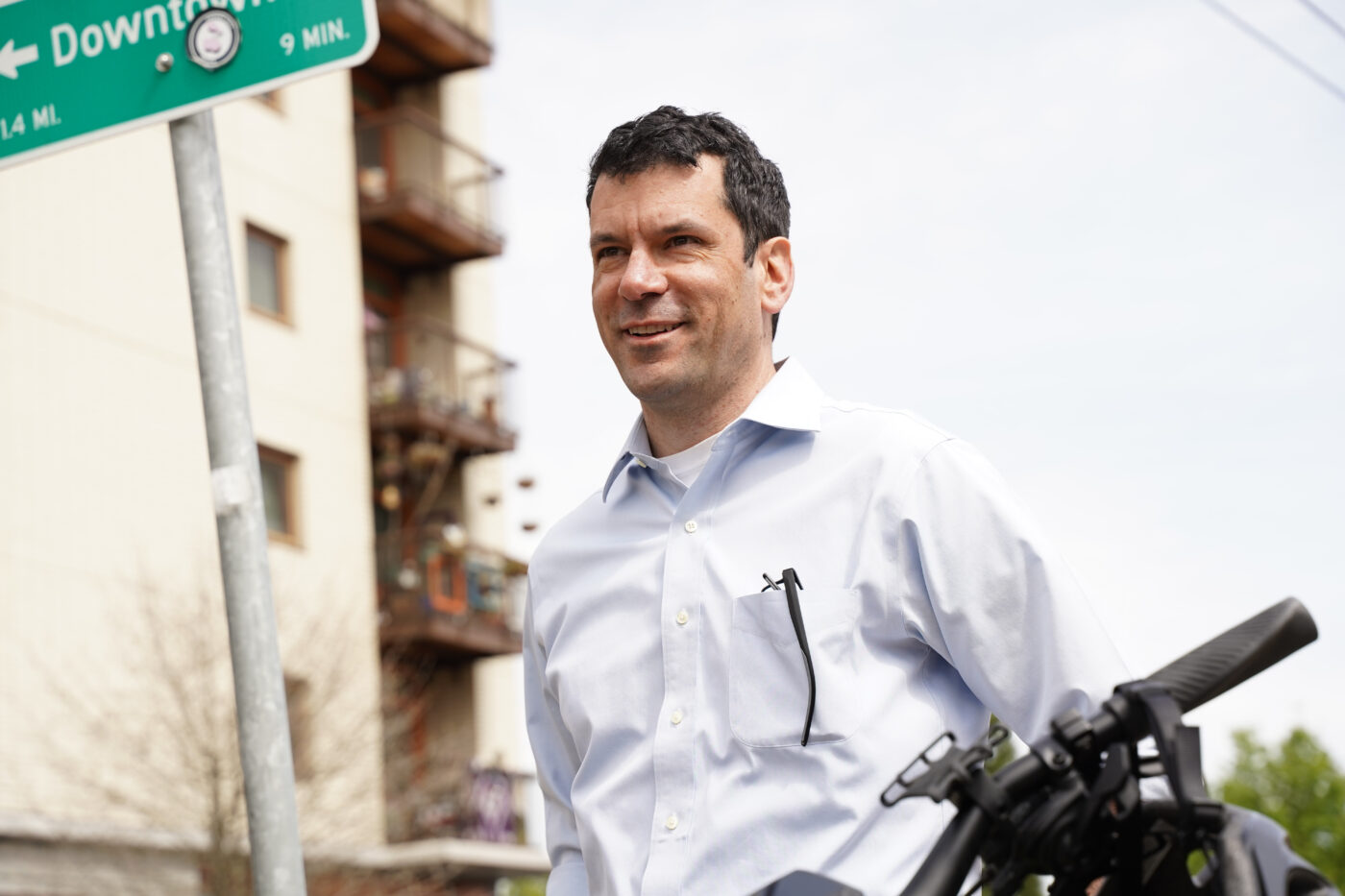
If you count the words of every Portland City Council candidate’s platform, it’s likely Chad Lykins would have the highest tally. The District 4 candidate is big on policy. His BikePortland debut was all about him wanting to have the best transportation platform of any candidate in the race. That might be because he has a lot of ideas and is eager to implement them, or because he has a PhD in research and public policy.
I spent a few hours with Lykins in his district yesterday. We rode our bikes and talked about infrastructure and policy — from protected bike lanes to homeless shelters. We both wore microphones as we pedaled around and I’ve shared the conversation above (and on our podcast feed).
Lykins is a leading candidate in District 4. Last month he became one of only seven candidates to qualify for $40,000 in matching funds. He’s a former professor, small business owner, and nonprofit leader. He’s also a proud progressive. It’s a label he defines as the center of Portland politics.
When I asked him how he’d navigate the divisive discourse that defines (and plagues) local politics these days, he said, “I think that for this next city council to be successful — and I’ll borrow the phrase from [Paul] Wellstone — ‘We don’t need to focus on if we’re on the left, or the right, or the center. We need to be out in front where the problems are.’ That’s really what I’m focused on.”

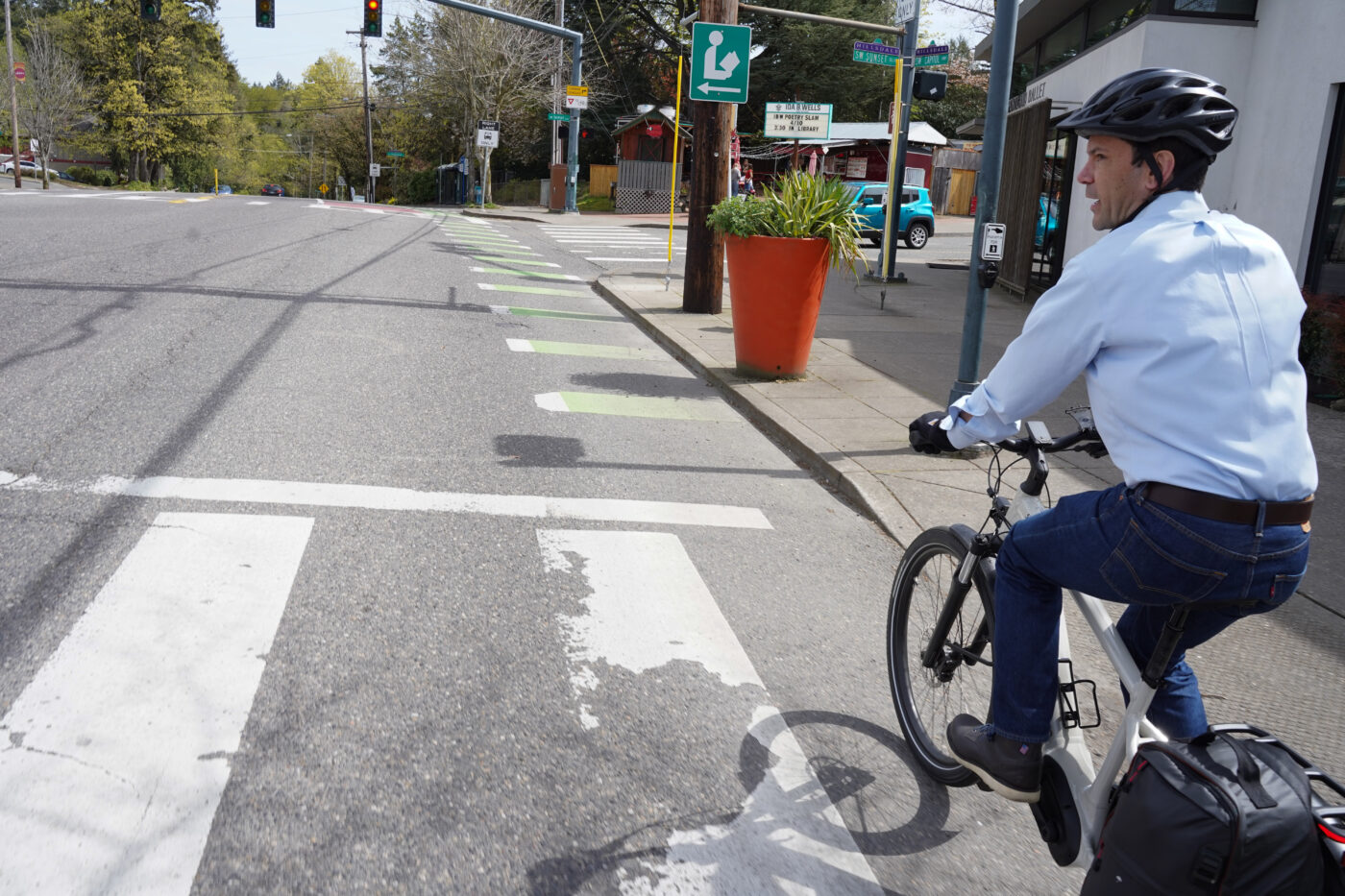
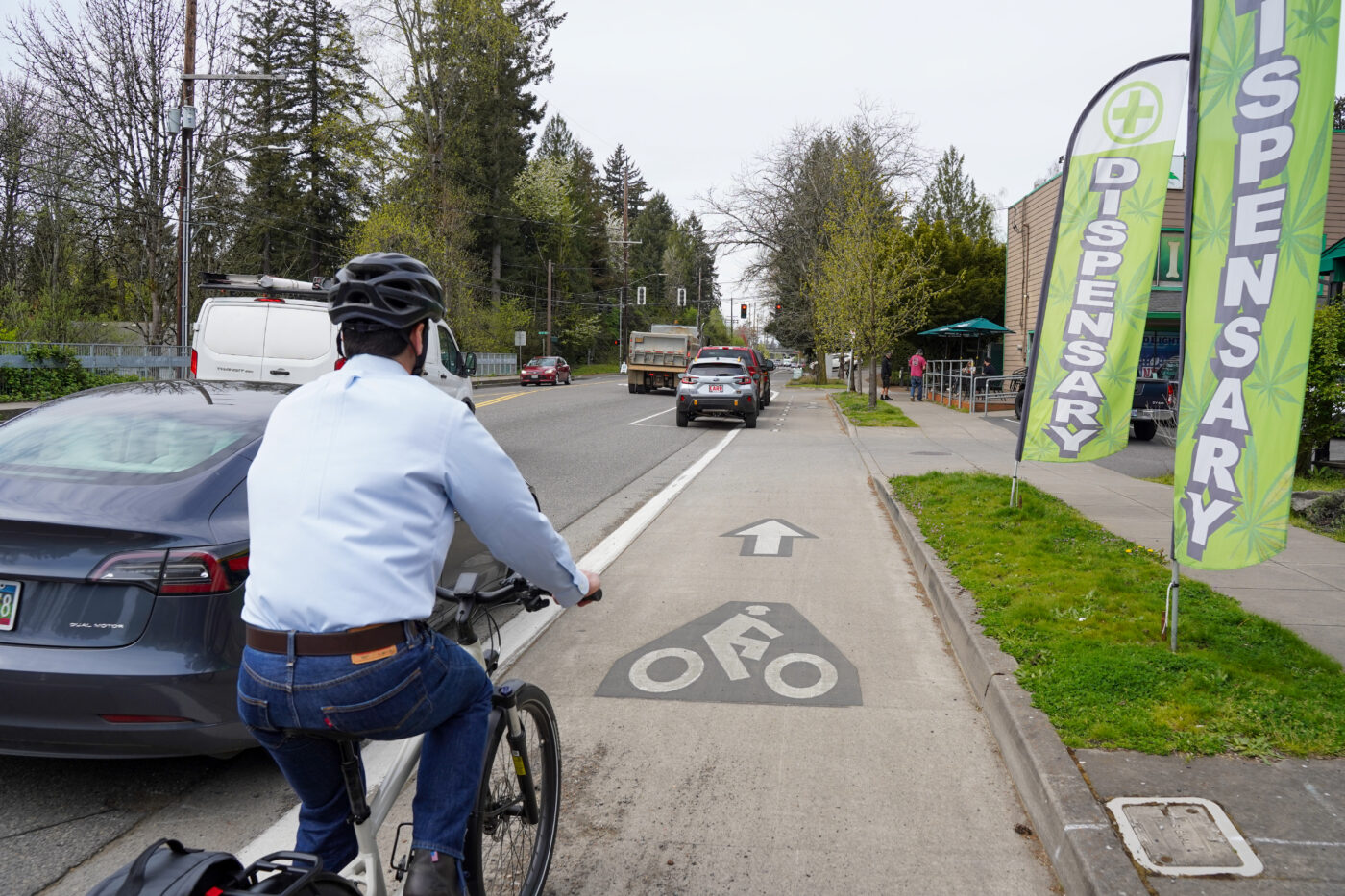
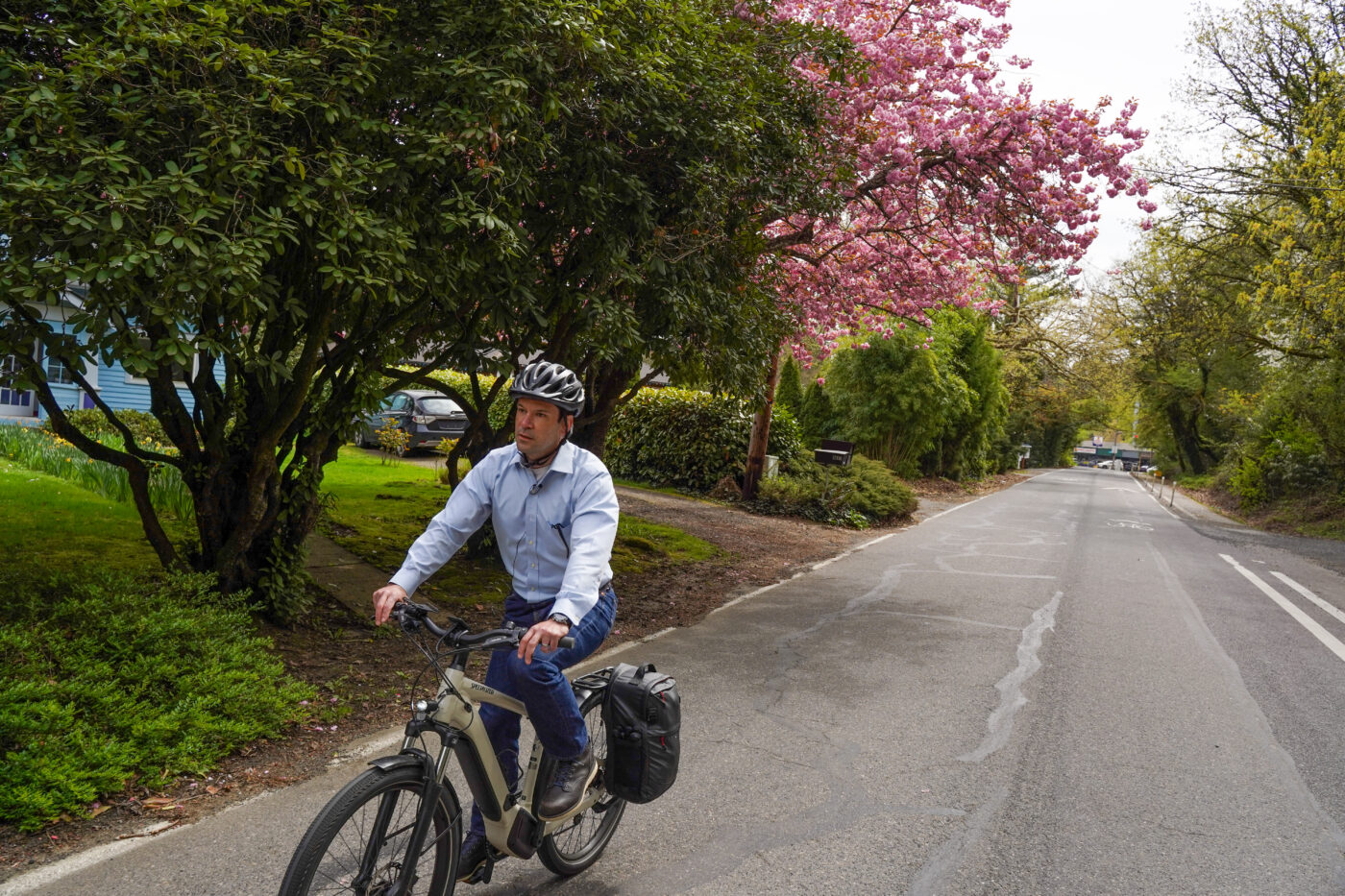
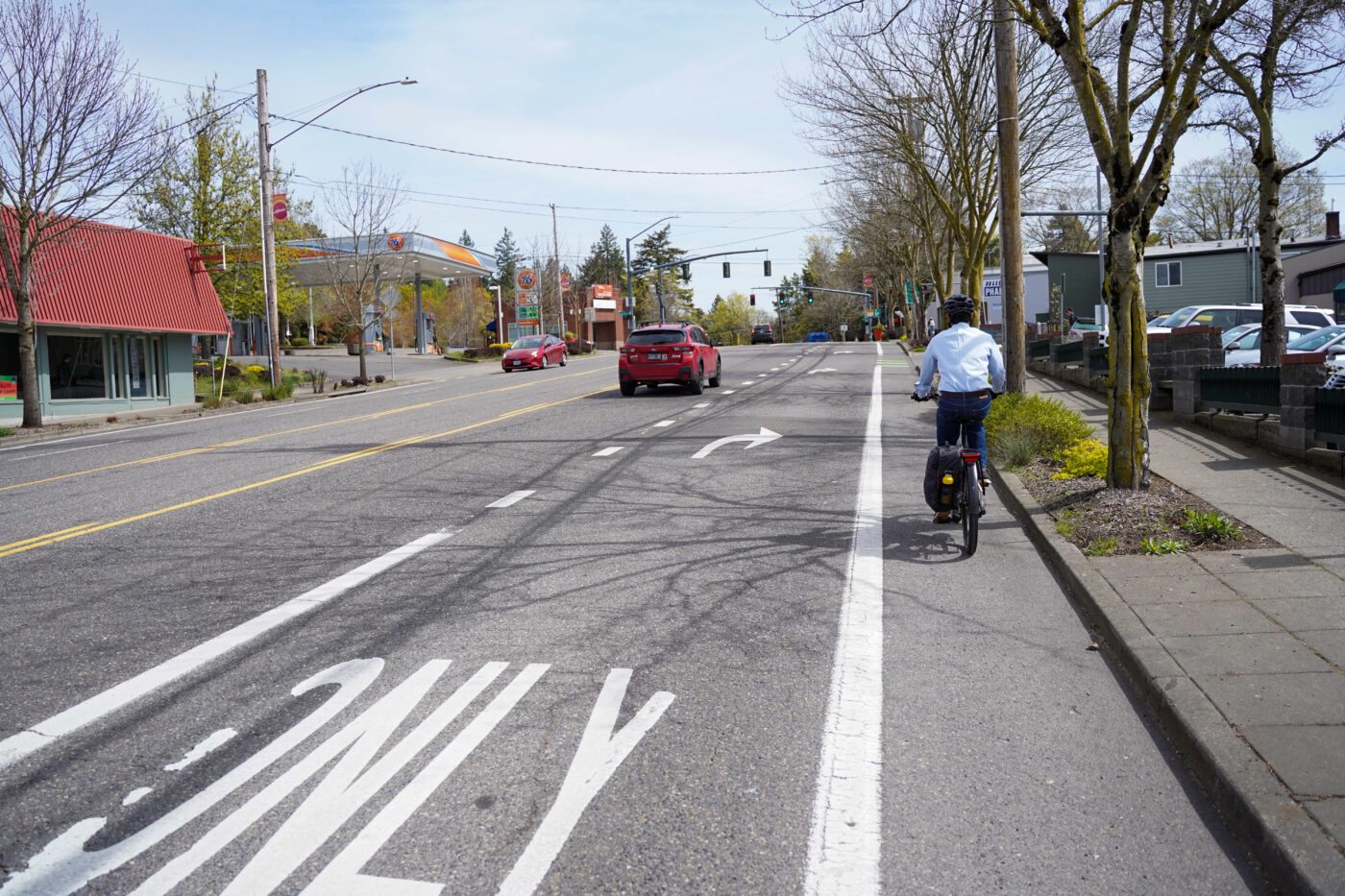
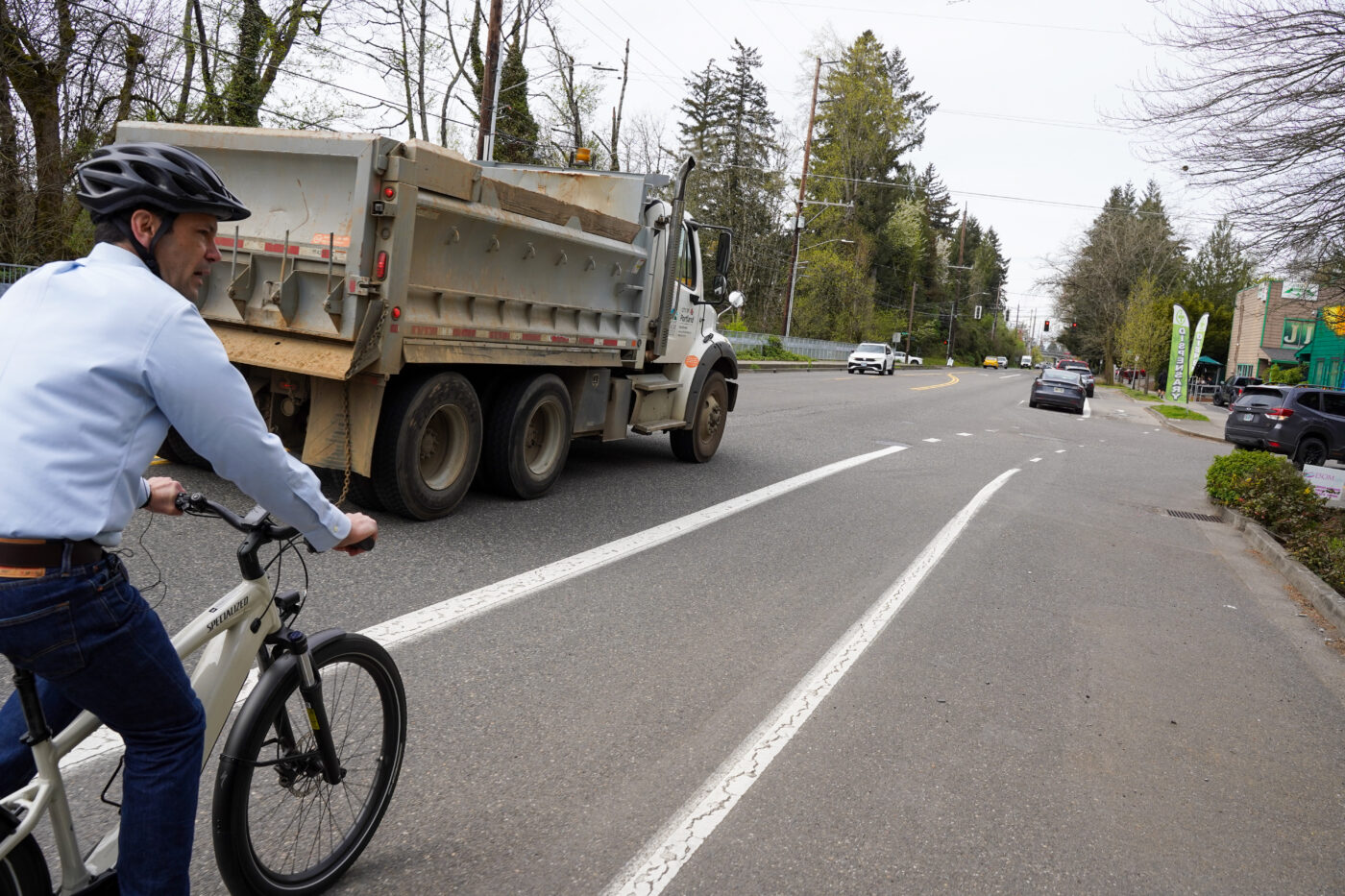
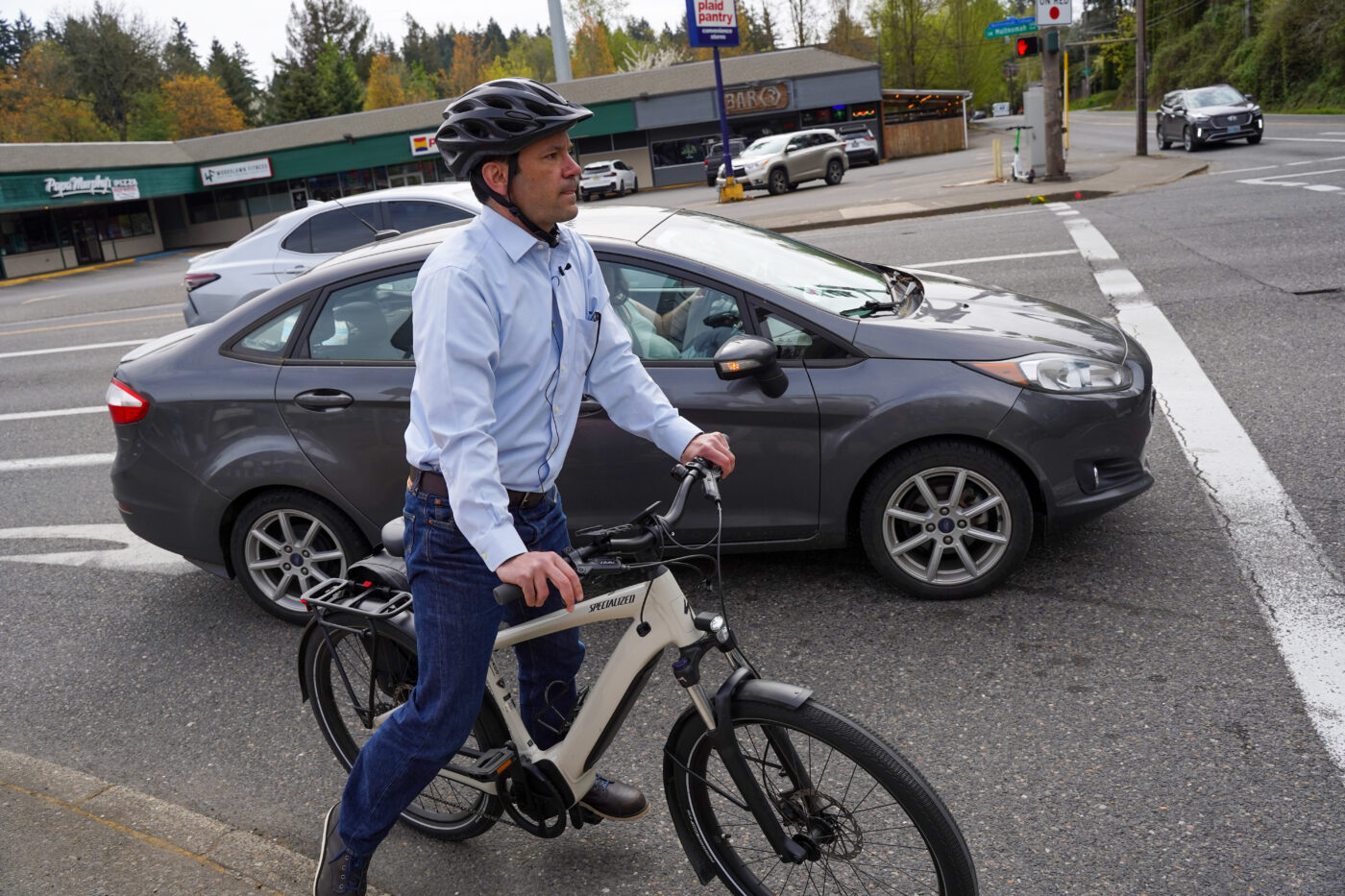

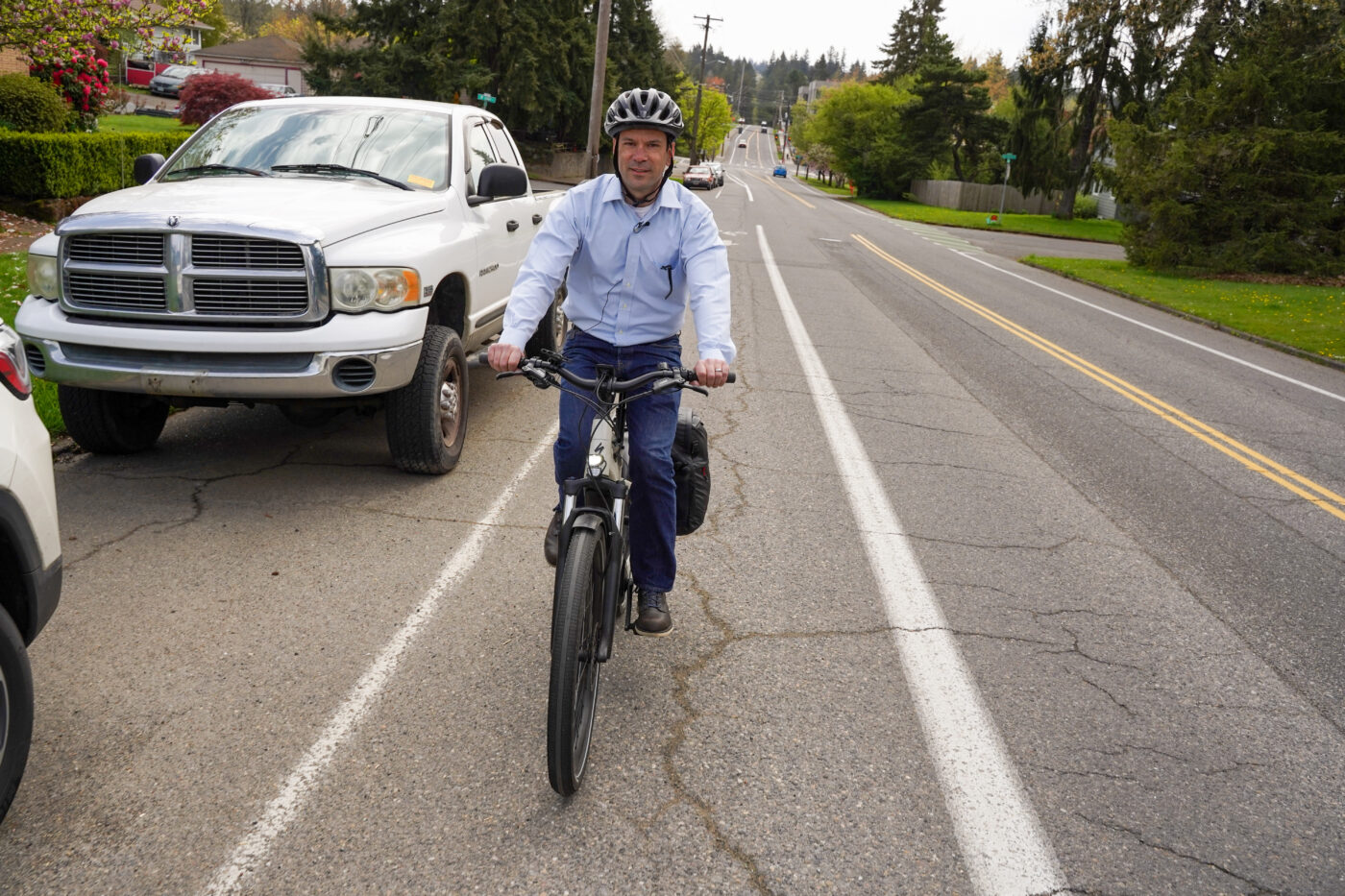

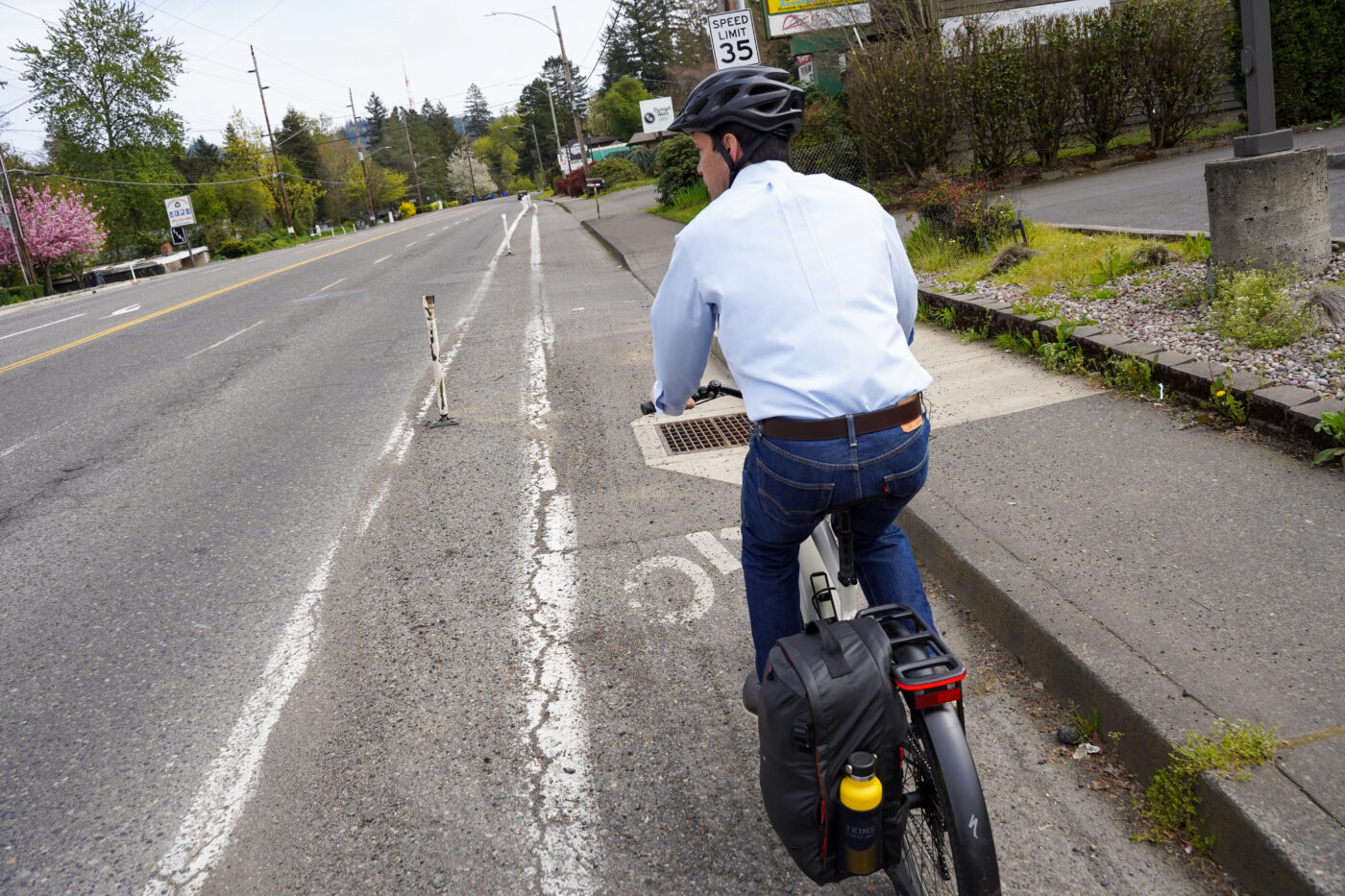



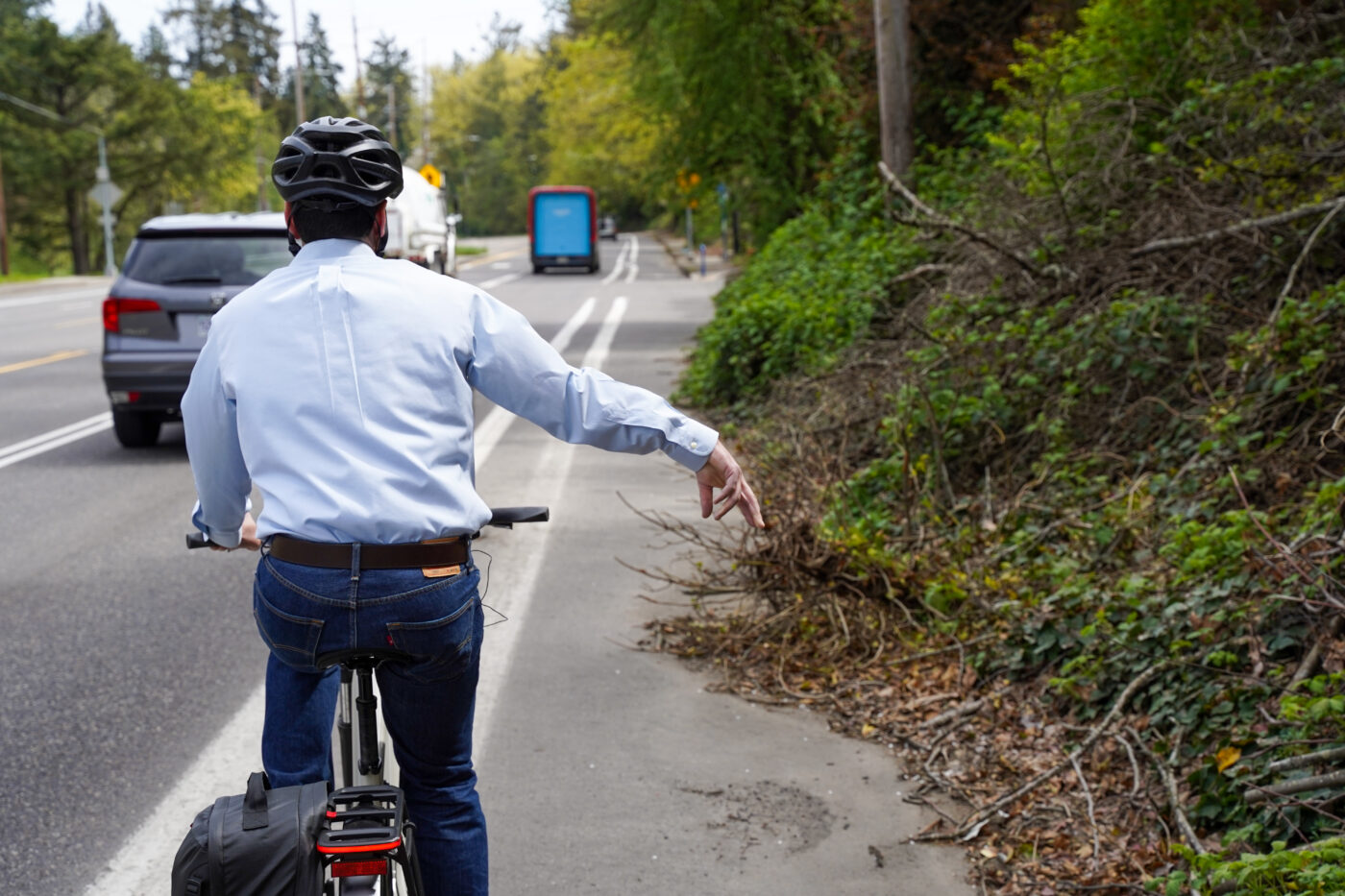



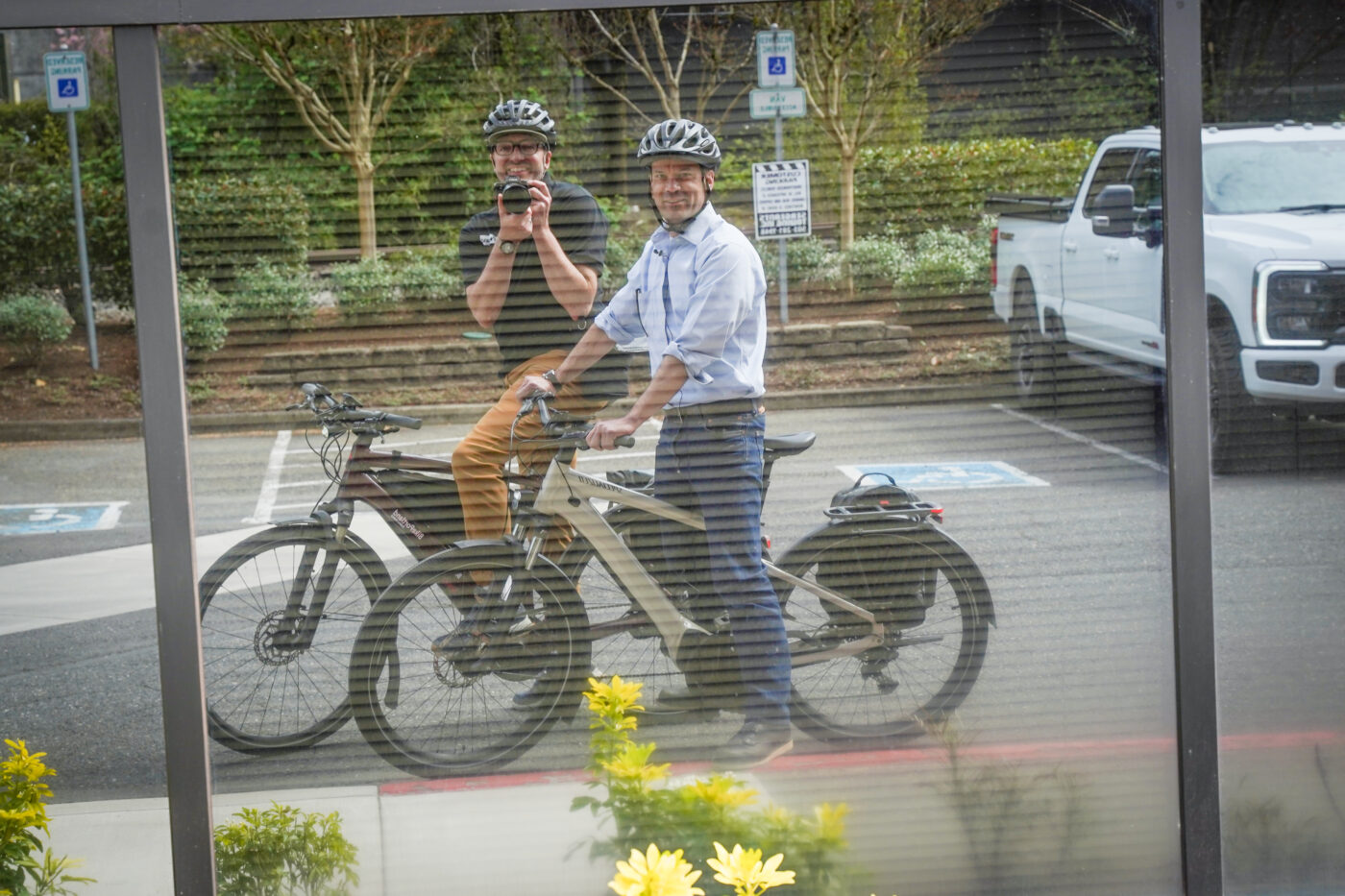
Lykins says his guiding light isn’t a particular ideology or political label; it’s evidence. “Before I think about ideology, whether something’s progressive or moderate… I just look at the evidence. Trying to win a seat on city council is really trying to elevate a bunch of people that care about evidence-based policy so we can govern.”
But Lykins understands not everyone agrees on the evidence, so some political lines must be drawn to make progress. “In Portland, that means less reaching out to the extreme right-wing and getting them to agree to stuff. The right wing is pretty weak, and they don’t have a lot of viable candidates running this election. It’s more about progressives, and I believe progressivism is the center. You’ve got conservatism on the right, and you’ve got radicalism on the left. Progressivism is what the center is. It’s where most Portlanders are. It’s about reaching out to the more radical members and saying…”
On both sides of the center? I interjected. To which he replied:
“No, actually. I think we can leave the radical sort of right-wing. I don’t actually think we need them to govern. We can listen to them, we can make them feel seen, but I don’t feel that we need to move to the right on things. But we do need to be able to reach out to the more radical [left] people in Portland and say, ‘Hey, like you, I walk and I ride. But sometimes I have to drive my kids a soccer practice and it’s not safe to do that. And I also drive. So let’s bring the volume down when we’re yelling at motorists a little bit.
I’m saying that we can be pro-tenant without being anti-landlord. There are some policies that really help both.
I feel like folks that say, ‘Oh, the problem is capitalism, so we need to uproot capitalism. Or the abolition of private property… I can’t put that on the city council agenda.”
What about the views of fellow District 4 candidate Eli Arnold, a Portland police officer with a tougher-on-crime platform?
“I am so glad you brought Eli on [the BikePortland Podcast]. I thought that was a good thing to do… I think Eli and I have different ideas as to what the evidence says about helping communities that are harmed by widespread addiction and helping people get housed. But I want to win that debate with him. I want to have the debate. I don’t want to try to silence other folks.”
On homelessness, Lykins (like every other candidate), says it’s his top priority.
Our ride began at Baker and Spice in the Hillsdale Shopping Center on SW Capitol Hwy. As we made our way to SW Multnomah, we pulled into the Multnomah Safe Rest Village.
Lykins supports shelters like these, but worries they might sap urgency for more permanent housing solutions. “We have to have answers to homelessness, and right now all we have are bad choices. Living in sheds isn’t anybody’s dream. But living in tents is everybody’s nightmare… We have to make sure that these aren’t a trap. That they’re not permanent rest villages. Because no neighborhood wants to host it forever and no person wants to live in one of these forever. It’s supposed to be transitional and we have to make sure it maintains that.”
After sharing fellow candidate Eli Arnold’s vision for immediate construction of regulated tent camps, I asked Lykins how he’d balance a housing-first mindset with concerns around “free for all” dispersed camping.
“I don’t want to speak for Eli, but as I understand it, his plan is not a shelter plan in the way that HUD [the federal Housing & Urban Development] defines it. It’s just a different place to put the tents. So he’s talking about instead of dispersed camping, concentrating the camping so that they’re all behind a big, barbed-wire fence. It’s just tents packed in very tightly together. I’ve searched as best I can for studies for — has anybody gotten off fentanyl and meth while living in a tent, whether it was dispersed or concentraed? — I haven’t found that that’s very effective or that it reduces crime in the neighborhood around it… I don’t think that that’s a real solution. I don’t think that it helps people get the job training they need, the mentoring they need to move on to services.”
While he’s spent time in academia, Lykins doesn’t speak solely from ivory towers. He says he grew up in Alabama with two teenage parents and his mom suffered from substance abuse and mental health disorders. “Things were not always safe in our house,” he recalled. “There was a night where I was getting something to eat in the kitchen, and I turned around and there was a gun to my head. Uh… I… it was my mom. She thought somebody had broken in the house. She just wasn’t totally, like, with it.
So when I talk about addiction, I talk about it from the perspective of somebody that’s had it in his family, has seen the impact on families, and has some ideas as to what folks that are going through and what they really need.”
Lykins also understands the impact unsafe bike infrastructure has on people in his district. At several points during the ride he checked in to make sure I felt safe.
“This bike lane really sucks!” he said, as his voice bounced with the cracks and bumps of the gutter bike lane on SW Capitol Highway next to the bus lane through the Hillsdale Shopping Center. He supports the bus lane, which has attracted a fair amount of opposition) but I wouldn’t call him a superfan. He thinks it might need some tweaks, but he absolutely wouldn’t support ripping it out. “I still stand firmly by the idea that we need to pass a statute at city council that says we’re not going to remove bus or bike or pedestrian infrastructure until we’ve replaced it.”
Lykins talks like he’s the rare leader who could weave that fine line between compromising his beliefs with a commitment to make significant progress. “The question is not letting the perfect kill the good,” he said, as we stood in the Alpenrose Dairy site that’ll soon be hundreds of new housing units. “I don’t want to be the person who drags things down because they don’t meet a hundred percent of every single objective we put out. You have to be willing to compromise.”
While he’ll listen to other sides, Lykins is unabashedly in favor of more dense development. “If we increase density, we’re gonna reduce vehicular miles traveled, we’re gonna have more people fighting for public transportation and bikes, and [those modes] will be more viable,” he said. “There’ll be more people riding it and our total maintenance for all of our roads will go down.”
And what happens if we don’t build more housing close the the central city?
“If we have to expand the urban growth boundary, that’s just building a time bomb. Because you have to maintain all the roads you build. You have to maintain the sewer system and all that stuff.”
Lykins has strong arguments for moving away from the car-driving status quo. “[My views are] pro driver, pro-motorist, because every time I ride my bike somewhere, I didn’t take your parking space, and you didn’t have to wait behind me. And I also didn’t hit you with my car.”
“I’m not a particularly great driver. So you got me off the road. That’s a good thing!” he added, laughing. “So the more people you get on bikes or taking public transit, the better your life is as a motorist.”
He also thinks building more protected bike lanes — with protection beyond just paint and plastic — is long overdue. At one point while riding he broke into song as we lamented the paint-only status of a bike lane: “They should remake the, ‘I’m Just Ken’ song [from Barbie],” he said, and then began singing, “It’s just paint. It’s just paint. Keeping you safe, it ain’t.”
Lykins is a Portland political newbie, which might be why he’s still in such a good mood. But don’t mistake his demeanor for a lack of seriousness. He understands the stakes are high.
He said he will focus on two things if he’s elected: housing (which he feels “unlocks” many related issues, including transportation), and setting up Portland’s new form of government to be effective.
“We have to govern well and we have to do it right the first time. I don’t know if we get a second chance. It’s a very narrow window.”
— Listen to the full conversation in the player above or wherever you get your podcasts. You can also watch a highlight reel video on BikePortland’s Instagram. Learn more about Lykins at LykinsForPortland.com




